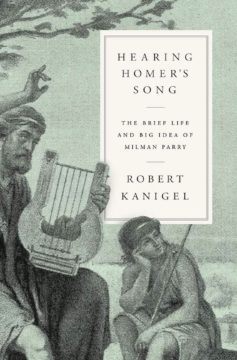Tim Riley at the LARB:
 “The effects of oral states of consciousness,” Walter Ong wrote in his 1982 book Orality and Literacy, “are bizarre to the literate mind.” Parry theorized that, if he could find a find a culture where bards still practiced an oral tradition, singing songs as long as Homer’s (over 12,000 lines), he could prove the links between Homeric verse and Bosnian song that scholars had long been puzzling over. In his approach, Parry worked a different field with some of the same purpose Alan Lomax did in the American South during this same period, collecting a rural folk tradition in order to catalog the vast body of American song. The Muslim Slavs of Bosnia, where Parry focused his recording, were called “guslars,” and played a single-string instrument called the “gusle.”
“The effects of oral states of consciousness,” Walter Ong wrote in his 1982 book Orality and Literacy, “are bizarre to the literate mind.” Parry theorized that, if he could find a find a culture where bards still practiced an oral tradition, singing songs as long as Homer’s (over 12,000 lines), he could prove the links between Homeric verse and Bosnian song that scholars had long been puzzling over. In his approach, Parry worked a different field with some of the same purpose Alan Lomax did in the American South during this same period, collecting a rural folk tradition in order to catalog the vast body of American song. The Muslim Slavs of Bosnia, where Parry focused his recording, were called “guslars,” and played a single-string instrument called the “gusle.”
To help in his field research, Parry — working with Lord, who was then his graduate student — brought along some of the same bulky portable recording gear used by Leoš Janáček and Béla Bartók to record singers.
more here.
